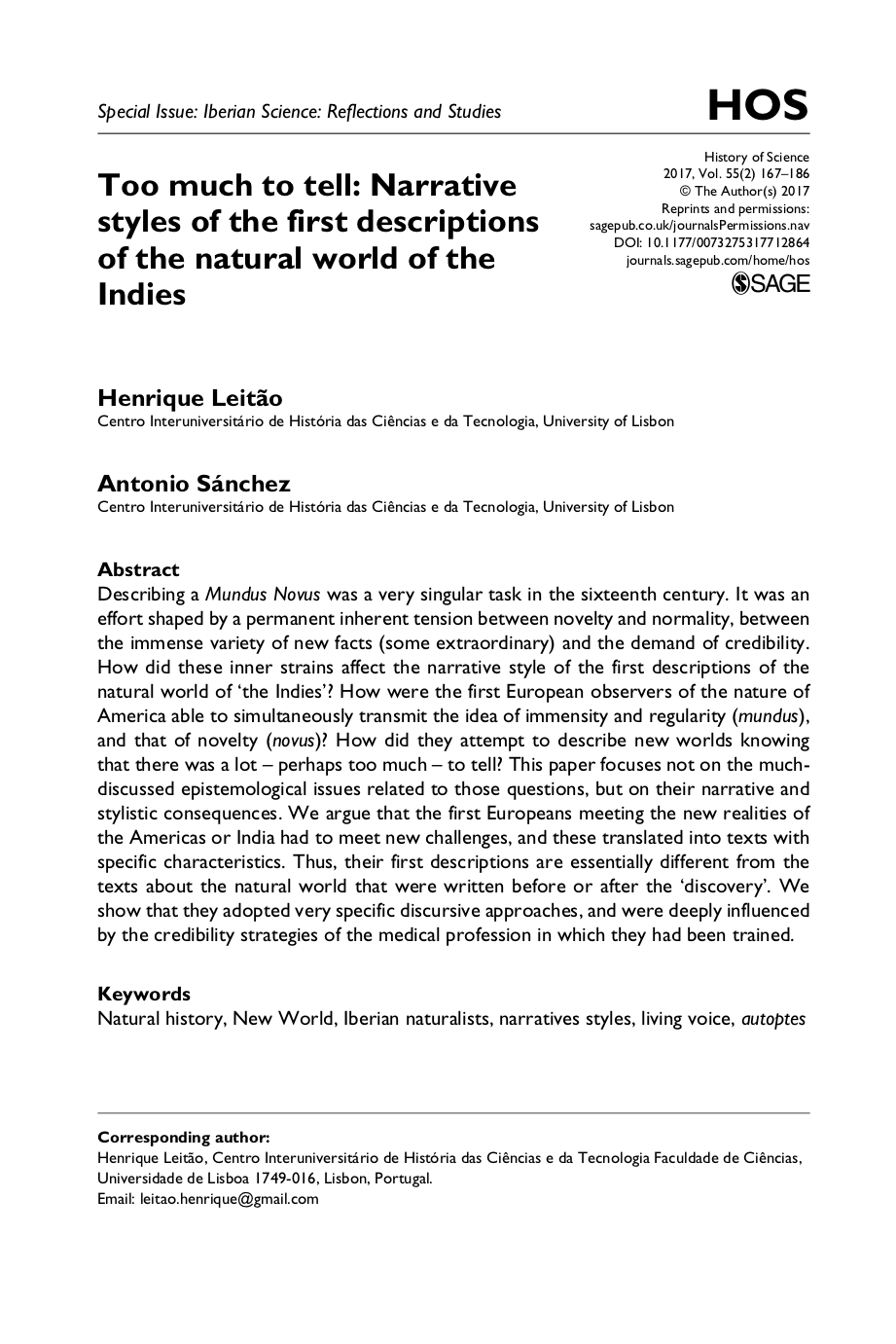Too much to tell: narrative styles of the first descriptions of the natural world of the Indies in sixteenth century Iberian texts
- Author(s)
- Year
- 2017
- Journal
History of Science 55, 2
- Nr. of Pages
- 167-186

Abstract
Describing a Mundus Novus was a very singular task in the sixteenth century. It was an effort shaped by a permanent inherent tension between novelty and normality, between the immense variety of new facts (some extraordinary) and the demand of credibility. How did these inner strains affect the narrative style of the first descriptions of the natural world of ‘the Indies’? How were the first European observers of the nature of America able to simultaneously transmit the idea of immensity and regularity (mundus), and that of novelty (novus)? How did they attempt to describe new worlds knowing that there was a lot – perhaps too much – to tell? This paper focuses not on the much-discussed epistemological issues related to those questions, but on their narrative and stylistic consequences. We argue that the first Europeans meeting the new realities of the Americas or India had to meet new challenges, and these translated into texts with specific characteristics. Thus, their first descriptions are essentially different from the texts about the natural world that were written before or after the ‘discovery’. We show that they adopted very specific discursive approaches, and were deeply influenced by the credibility strategies of the medical profession in which they had been trained.